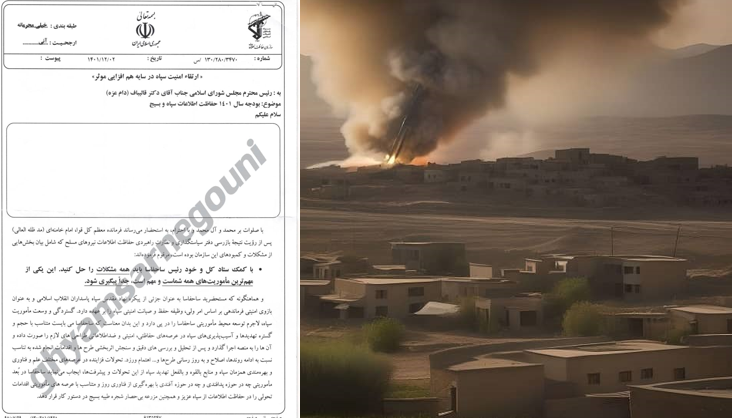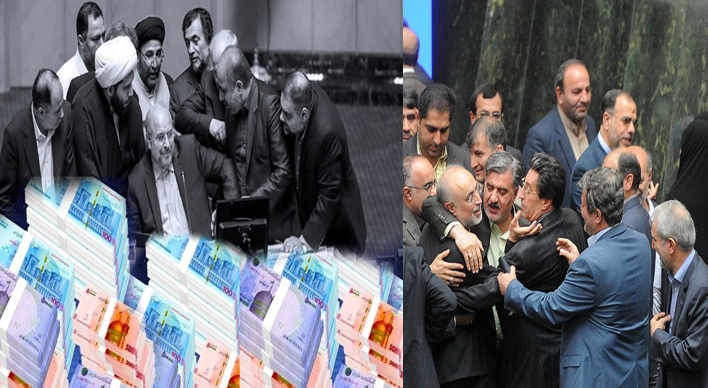
The seizure of 600 servers by the dissident group Ghiam Sarnegouni, meaning “Rise to Overthrow” in Persian, has unveiled documents that lay bare the exclusion of parliament members from Iran’s decision-making process. Instead, Mohammad Bagher Ghalibaf, the Speaker of the Parliament and a figure previously embroiled in corruption scandals, is portrayed as a key facilitator for Supreme Leader Ali Khamenei and the Islamic Revolutionary Guard Corps (IRGC) within the legislative arm.
General Mohammad Baqeri, Chief of Staff for the Armed Forces, disclosed in a letter that a staggering 7.7 trillion tomans were earmarked for the Quds Force in the previous year’s budget. He further requested Ghalibaf to include this amount in the Revolutionary Guards’ overall budget, pushing the armed forces’ budget to an unprecedented 145 trillion tomans after the addition.

This incident marks the first public disclosure of the Quds Force’s budget, an entity long accused of engaging in corruption and money laundering to further Khamenei’s ambitions of regional destabilization. The documents also uncover a request for a separate budget for the Intelligence Protection Organization of the IRGC, emphasizing the need for dedicated funding to address intelligence gaps within the organization.
The letter points out that certain nuclear facilities, including the Isfahan reactor and the Tetra Center in Tehran, have been constructed in inappropriate locations, posing significant security risks.

Additionally, a letter to Khamenei and President Ebrahim Raisi dated November 27, 2023, from the Secretary of the Supreme National Security Council, predicted sabotage and disruption in the gas pipeline network. It highlighted vulnerabilities in energy security due to cyber threats, labor strikes, and sabotage.
The revelations have not only caused a stir domestically but have also captured international attention. Some state-run media outlets, despite the regime’s attempts at censorship, have begun reporting on the leaks. For instance, Ruydad 24 detailed the criticisms within Jalali’s letter regarding the lack of protective measures for atomic sites and the continued presence of spent nuclear fuel in densely populated areas of Tehran.


MEK Iran (follow us on Twitter and Facebook), Maryam Rajavi’s on her site, Twitter & Facebook, NCRI (Twitter & Facebook), and People’s Mojahedin Organization of Iran – MEK IRAN – YouTu







